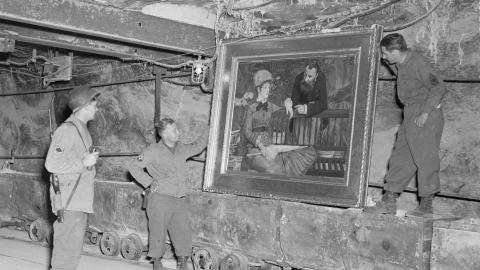Norman Schwarzkopf: Biography
He's the retired four-star general who fought the 1991 Gulf War, Saddam Hussein and his own personal battle against cancer.
American Army officer ‘Stormin’ Norman Schwarzkopf was born in New Jersey, and graduated from the United States Military Academy in 1956.
No candidate for the Ivy League, Schwarzkopf took a masters degree in engineering from the University of Southern California a full eight years later, and entered the military.
Schwarzkopf served in numerous assignments throughout Europe, the US and the Pacific, rising from platoon through corps level.
During the Vietnam War, in which 58,202 American soldiers and hundreds of thousands of Vietnamese lost their lives, Schwarzkopf took two tours of duty.
He attaining the rank of general in 1978 and, in October 1983, he acted as deputy commander of the US invasion of Grenada, and was surrounded by controversy following the exclusion of the media from the island.
In 1988, Schwarzkopf was appointed head of the US Central Command. After Iraq invaded Kuwait in August 1990, the US military reversed its long-held policy of strong arms and defence aid for the Hussein dictatorship, and launched Operation Desert Storm, for which Schwarzkopf was responsible.
Schwarzkopf led the multinational Desert Storm during the first Gulf War in 1991, and succeeded in liberating Kuwait. During the war, mainly due to his charismatic avoidance of eloquence and subtleties, he became the most popular US general since World War II.
At the last minute, planned post-war US military support for a Shiite Muslim rebellion in the south of Iraq was withdrawn.
Schwarzkopf’s autobiography, ‘It Doesn't Take a Hero’ was published in 1992, becoming a bestseller.
Since his retirement after the war, Schwarzkopf moved into voiceovers for commercial television military shows.
He is also active in charities seeking to improve the quality of life for children, and the conservation of the grizzly bears.
In 2003, Schwarzkopf emerged as a strong critic of the controversial Iraq War, maintaining that weapons inspections were more desirable.
















